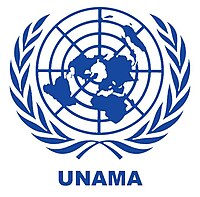Roza Otunbayeva, the head of the United Nations Assistance Mission in Afghanistan (UNAMA), said in a UN Security Council meeting that out of the three billion dollars requested for Afghanistan this year, only $900 million have been received.
Otunbayeva also said that the freezing of Afghanistan’s central bank assets has limited the country’s private sector.
According to the UN Secretary-General’s representative in Afghanistan, the activities of 260 fixed and mobile health centers that provided primary healthcare services in Afghanistan have ceased, affecting 2.9 million people. It is also expected that the activities of 171 more health centers will be stopped in the coming months.
Roza Otunbayeva said, “I am greatly concerned that 2024 Afghanistan humanitarian response plan is only 30% funded, with around 900 million dollars received of the three billion dollars required.”
Naseer Ahmad Faiq, Chargé d’Affaires of Afghanistan’s Permanent Mission to the UN, said in the Security Council meeting: “85% of Afghanistan’s population now living below the poverty line, 23 million people suffer from acute food insecurity, with six million people at immediate risk of starvation.”
Munir Akram, the Pakistan’s permanent representative at the UN, said: “The request to address the humanitarian situation in Afghanistan has received less than 25% of its budget. This budget must be fully paid. Pakistan is cooperating in Afghanistan’s economic recovery through trade and the banking sector.”
The representatives of Kazakhstan and Uzbekistan also emphasized economic stability in Afghanistan during the meeting, saying that integrating Afghanistan into the regional economic system is beneficial for Central Asia.
The representative of Kazakhstan said, “The people of Afghanistan need support from its neighbors and international organizations, today we can’t allow the continuation of … poverty and hunger in this long suffering.”
The representative of Uzbekistan said, “We believe that to establish lasting peace in Afghanistan, the focus should be on building the national economy and transport projects.”
The Ministry of Economy said that economic sanctions, the freezing of national assets, and the reduction of humanitarian aid are among the reasons for the increase in poverty. To achieve economic growth, the global community needs to expand its economic interactions with Afghanistan.
Abdul Latif Nazari, the technical deputy of the Ministry of Economy, told TOLOnews: “The most important factor for the increase in poverty in the country is the freezing of Afghan people’s assets, which has also harmed the private sector. We want the assets of the Afghan people to be released as soon as possible. In addition, we have a special focus on job creation and infrastructure projects to accelerate Afghanistan’s economic growth and development.”
The United Nations Assistance Mission in Afghanistan said in the Security Council meeting that since the return of the Islamic Emirate, more than seven billion dollars have been provided by international donors for humanitarian aid, and more than four billion dollars for supporting the basic needs of the Afghan people.

